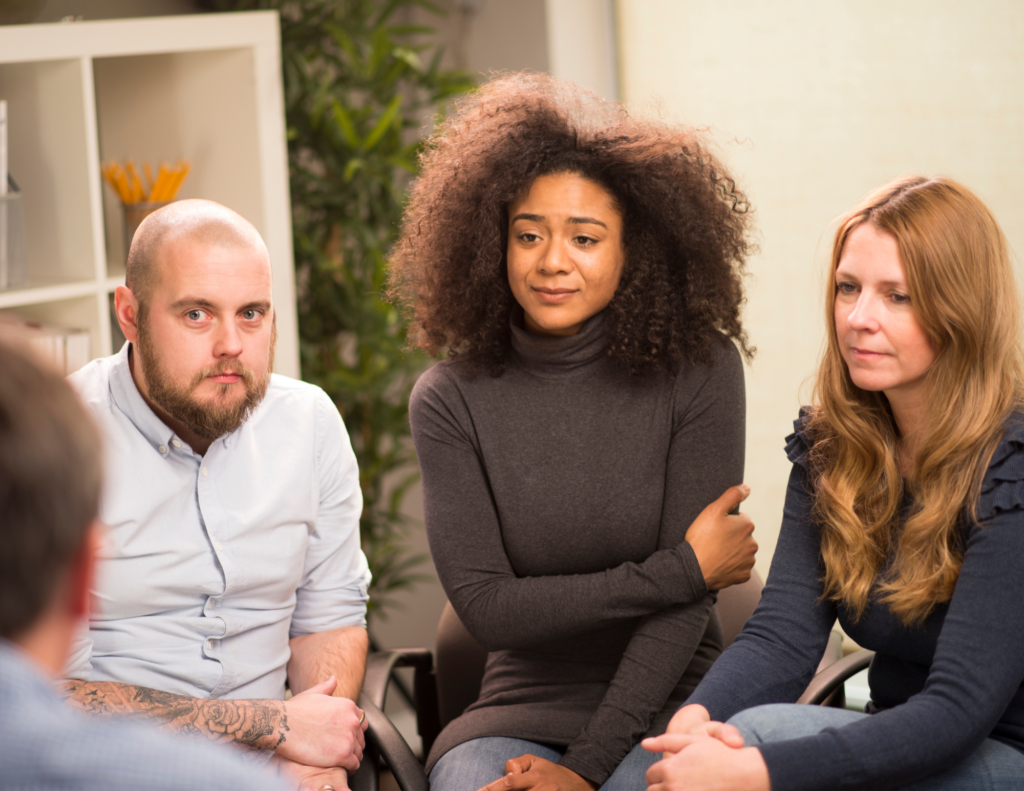Best Practices for A Great Group Therapy Experience: Therapy-Seeker Edition

Written by: Sabriya Charles, MA, NCC, Registered Mental Health Counselor Intern | Fruits of Freedom Counseling
Group therapy can be a really scary experience. Will you fit in? Will it be awkward? What if you overshare or undershare? What if people judge you? What if you get nervous?
It is common for these thoughts to cross your mind, and it is only normal to have fears. However, the best thing about group therapy is that it requires YOU to be a successful experience! In other words, group therapy does not exist without your valuable contributions and perspectives. Being present in groups is the first step to creating a great experience and here are a few more tips to ensure you settle in just fine:
- Be Open and Honest
- Your willingness to share your thoughts and feelings can be healing for others just as much as it can benefit you. You never know if this next time you tell your story, you’ll gain insight from someone that you deeply need. Sharing openly can also build trust and authenticity in the group.
- In addition, it is important to be transparent about your needs and concerns in the group. You may be feeling like you have some specific goals in mind that you hope to meet. Make them known so the facilitator and group members can support you along the way. You may require certain boundaries in group. Be open about then so group members can meet you where you are.
- Respect Confidentiality
- Keep what’s shared in the group private by respecting the confidentiality of others’ stories and experiences. You want to feel safe in the group so be considerate of others wanting the same thing. While it can be easy to want to share the “juicy tea,” honor the process and it can work wonders!
- Participate Actively
- While showing up is important, it is just as crucial to engage in discussions and to do your best to contribute to conversations and activities. Don’t forget to listen actively so you can adequately offer support and learn from others’ stories and experiences.
- There may days that you want to fade into the background and that is okay too. However, remember that you get what you put into group therapy.
- Be Respectful
- Everyone is not going to be like you in group and that is what makes it a richer experience. It is key to respect others’ opinions and experiences as you must understand that everyone’s journey is different. Stay calm when conflicts arise and allow your facilitator to help you untangle the weeds.
- Share your observations and feelings in a respectful manner with other group members.
- Showing up on time and consistently is important for building trust and progress.
- Manage Your Expectations
- Group will not be able to solve every single one of your problems. Take the time to understand the group’s goals. Knowing what the group aims to achieve and how it aligns with your own goals can help you manage expectations.
- Progress in therapy can be gradual and varies from person to person so be patient with your journey.
- Practice Self-Care
- It is crucial to take care of your emotional needs as group therapy can be intense; ensure you have support systems and self-care practices outside the group.
- If you’re struggling, consider individual therapy or other resources outside of the group to ensure you are coping.
- Ask for Clarifications
- It’s okay to ask for clarification or more information about the therapy process or techniques used if you do not understand. In addition, if you do not understand an activity or discussion topic in the session, do not be afraid to request more information.
- It is okay to gather clarity from your fellow group members on their experiences so you can give proper feedback.
- Respect the Therapist’s Role
- The therapist/group leader is there to guide and facilitate, not to judge or solve all problems. They have a guidelines in place to protect all group members and to ensure everyone is in the safest space possible.
- Adhering to the methods and boundaries set by your facilitator is essential to ensuring you can comfortably navigate the group experience.
A great group therapy experience can be in your future if you take these tips in mind. While every group will vary based on the topic, members, facilitator(s), you can be a part of making the space safe and healing for yourself as well as others.
Learn more about the types of groups by accessing our Group Therapy Guide. Find a group therapy experience today!

